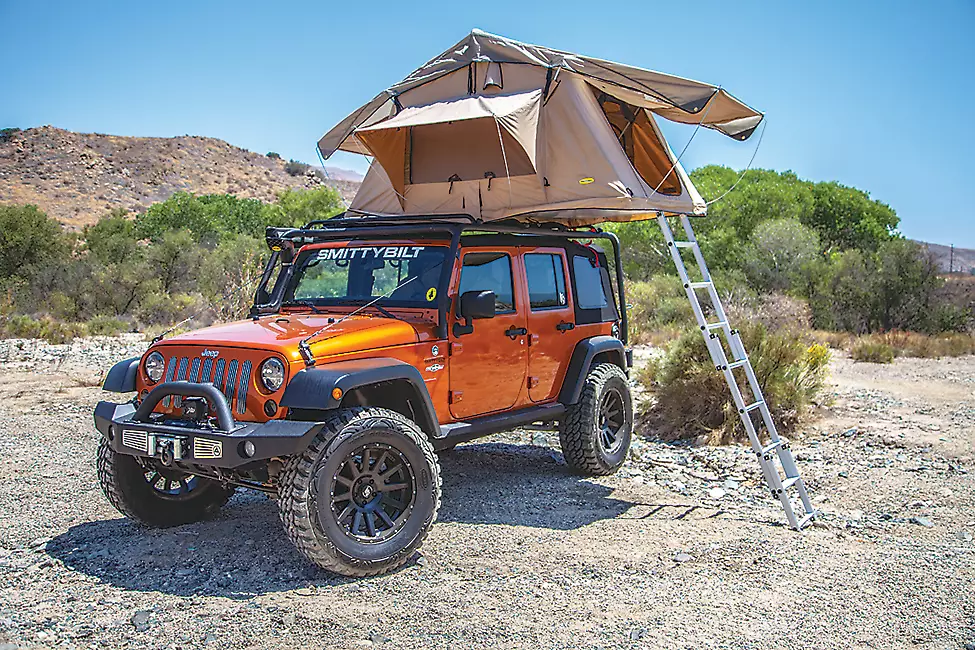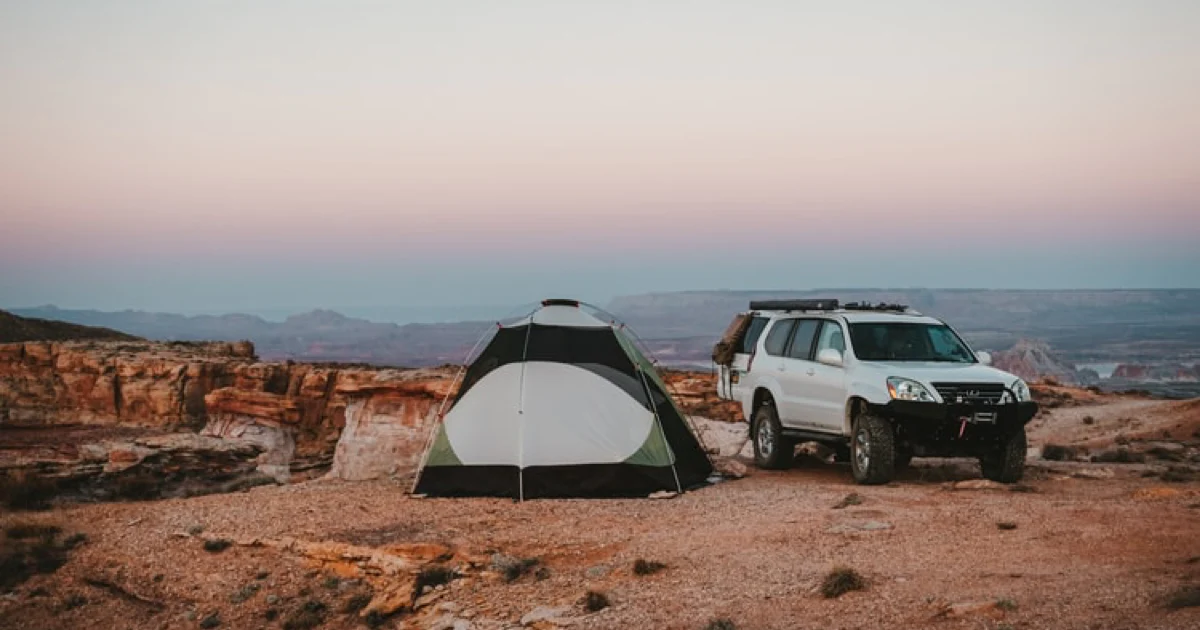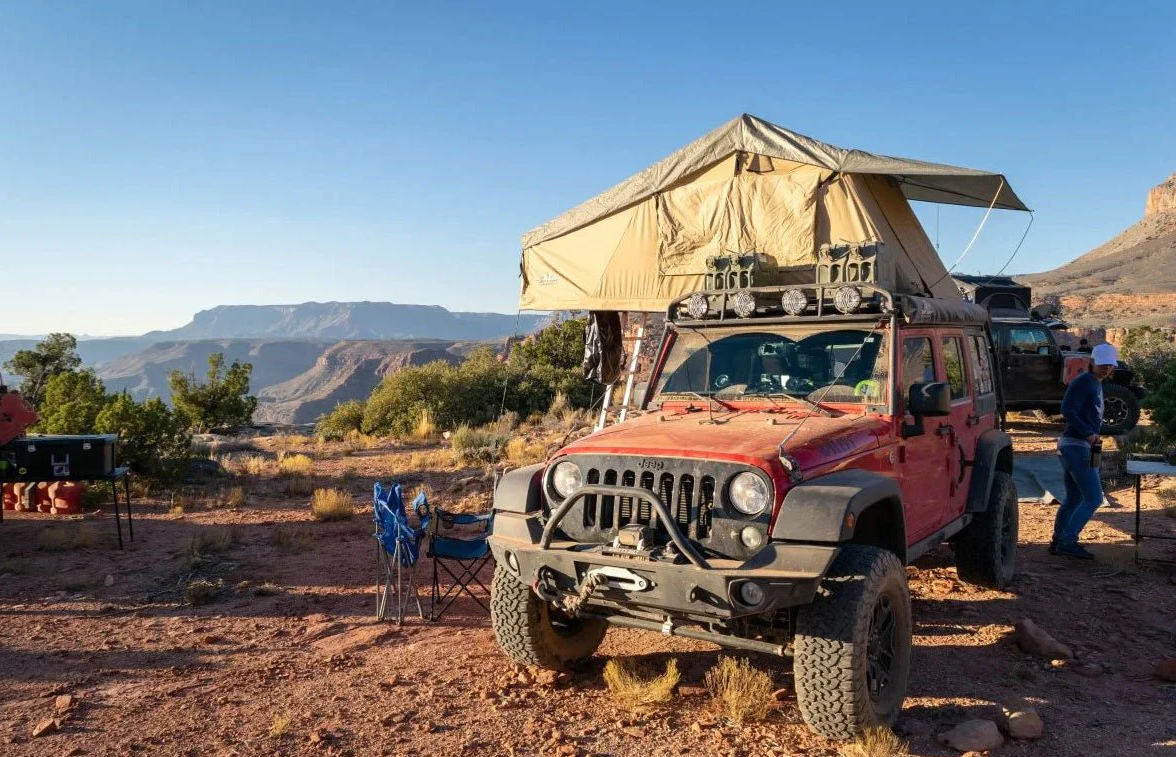Purchasing an off-roader for overlanding can be absolutely thrilling. However, there are many things that you must take care of before you make your purchase. Because of the dangers of mother nature, you must choose only the best overland adventure truck. The vehicle chosen should take you through any terrain and back to the starting point. It should be capable, reliable, and suitable for all of your requirements. But with so many different brands and nameplates available, the buying process can also be overwhelming. In this comprehensive guide, we’ll explore some key aspects to consider when selecting a vehicle for your overlanding adventures.

Off-Road Capability
When it comes to overlanding, off-road capability is of uttermost importance. We’ll discuss the various features and factors that contribute to a vehicle’s off-road prowess, so much as ground clearance, four-wheel drive systems, traction control, and suspension. By understanding the essentials of off-road capability, you’ll be able to select a vehicle that can handle the diverse challenges of overlanding.
Durability and Reliability
Durability and reliability are essential qualities for any overlanding vehicle. We’ll discuss how a vehicle’s build quality, mechanical reliability, and ruggedness play crucial roles in ensuring a trouble-free journey. We’ll explore the importance of researching and considering the track record and reputation of different vehicle models. Additionally, we’ll provide tips on maintaining and servicing your vehicle to keep it in top condition throughout your overlanding adventures. By prioritizing durability and reliability, you’ll have peace of mind knowing that your vehicle can withstand the rigors of off-road travel.
Researching different models
There are numerous types of 4x4s available, each with its own pros and cons. Research different models to determine which one is the best for you. Consider factors such as engine power, ground clearance, and suspension. Off-roaders are notoriously inefficient, so if you plan on being a full-time overlander, consider a diesel-powered vehicle, which tends to be more fuel-efficient than gasoline-powered vehicles. A newer expedition vehicle may be pricier, but it’ll save you thousands on fuel in the long run. Trailering is another big aspect of the game. You need to ask yourself if you require a vehicle to tow a trailer or haul heavy loads. There are heavy-duty options available with stronger frames, more power, towing packages, and DRW options.
They’ll add to the towing prowess. Also, don’t forget the safety department. Remember that off-road driving can be hazardous, so it’s important to select an expedition vehicle with good safety features. Look for features such as airbags, anti-lock brakes, and electronic stability control. Another important aspect is the resale value of the car. Off-road vehicles tend to retain their value well, but some models are better than others in this regard. Research which models hold their value the best in case you decide to sell the overland adventure vehicle in the future.
 New Vs. Used Overland Vehicles
New Vs. Used Overland Vehicles
If you’re considering buying an overlanding vehicle, one of the biggest decisions is choosing between a newer overland vehicle with potentially better reliability or an older budget overland vehicle with more initial maintenance needs and potentially less reliability. Let’s look at the benefits and potential drawbacks of each option to help you figure out which may make for the best overlanding vehicle for your needs.
New Overlanding Vehicles
Vehicle manufacturers are constantly making improvements to their product lines to appeal to a larger customer base, and in recent years many have begun curtailing their offerings to the overlanding market by building in more and more off-road capability and functionality.
PROS
- They’re built to higher safety standards than older vehicles, things like anti-lock brakes and side-impact air bags are now almost standard equipment
- No initial maintenance needs, if purchased new. Plus there is the added security of a manufacturer’s warranty and scheduled maintenance plans
- More comfortable suspension with a much more comfortable ride both on and off road when compared to older overlanding vehicles
- Aftermarket Parts & Equipment – newer vehicles see wider support from aftermarket vehicle parts and equipment manufacturers, making it easier to source parts when modifying them for overlanding.
CONS
- Mechanical/Electrical Complexity – due to the complex computer, electronics, and emissions systems in modern overlanding vehicles you likely won’t have the skills, means, or equipment to work on it yourself – and in the event you have a mechanical issue in a remote location this could be a very serious disadvantage.
- Parts & Repair Availability Abroad – Even if you are able to diagnose a mechanical issue while traveling (or find a shop that can) and have the ability to fix it, if the vehicle is new and/or isn’t sold or distributed in the country/region in which you’re traveling, the parts may simply not be available locally. This would result in exorbitant shipping costs and long delays waiting for your parts to arrive.
Older Used Overlanding Vehicles
Finding and using an older or used overland vehicle is not without it’s obvious disadvantages when compared to using a brand new vehicle for overland travel. With that said, there are several reasons you may be better served with an older overland vehicle.
PROS
- Mechanical Simplicity – older vehicles are inherently less complex than modern vehicles, especially those manufactured prior to the dawn of the electronic control unit (ECU) and electronic fuel injection.
- Armed with a basic mechanical understanding* and a good service manual for the vehicle, you can diagnose and repair nearly anything on these older vehicles yourself.
- Parts and Repair Availability Abroad – while using an older overlanding vehicle doesn’t guarantee global parts availability, it does improve the odds greatly and there are greater odds of finding used parts at salvage yards. It also increases the odds of finding a shop that’s capable of diagnosing and repairing any issue that’s beyond your mechanical ability.
- Cost – the older the vehicle, the lower the cost – generally speaking. There are a plethora of used vehicles available that would make excellent overlanding vehicles, most of which can be had for less than $8000 USD.
CONS
- Lower Safety – older vehicles were not held to the same stringent safety standards as modern overlanding vehicles, so many of the now-standard safety features like airbags and anti-lock braking systems may not be present
- Higher Maintenance Needs – any budget overlanding vehicle is going to need some degree of initial maintenance to get it to a state where it can be relied upon for long-term overland journeys. And it will always require a more vigilant pre-trip maintenance check, as well as more diligent maintenance schedules to ensure it continues to be reliable.
- Ride Comfort – older vehicles, especially those with solid axle suspension, will lack the cushy comfortable ride of modern independent suspension systems
Budget and Affordability
Budget is a crucial factor when choosing a vehicle for overlanding. We’ll discuss the importance of setting a realistic budget and considering all associated costs, including purchase price, maintenance, modifications, and fuel expenses. We’ll explore the pros and cons of buying new versus used vehicles and provide tips on finding affordable options that meet your needs. Additionally, we’ll discuss the potential for financing or leasing options to make your dream overlanding vehicle more attainable. By considering your budget and affordability, you’ll be able to find a vehicle that aligns with your financial goals and provides the best value for your investment.

Off-roading is thrilling and exciting and it offers something for everyone. By choosing a vehicle with the right features, you can ensure that you’re well-equipped to tackle any off-road adventures. Follow our tips to select the right off-road vehicle for your needs and budget.